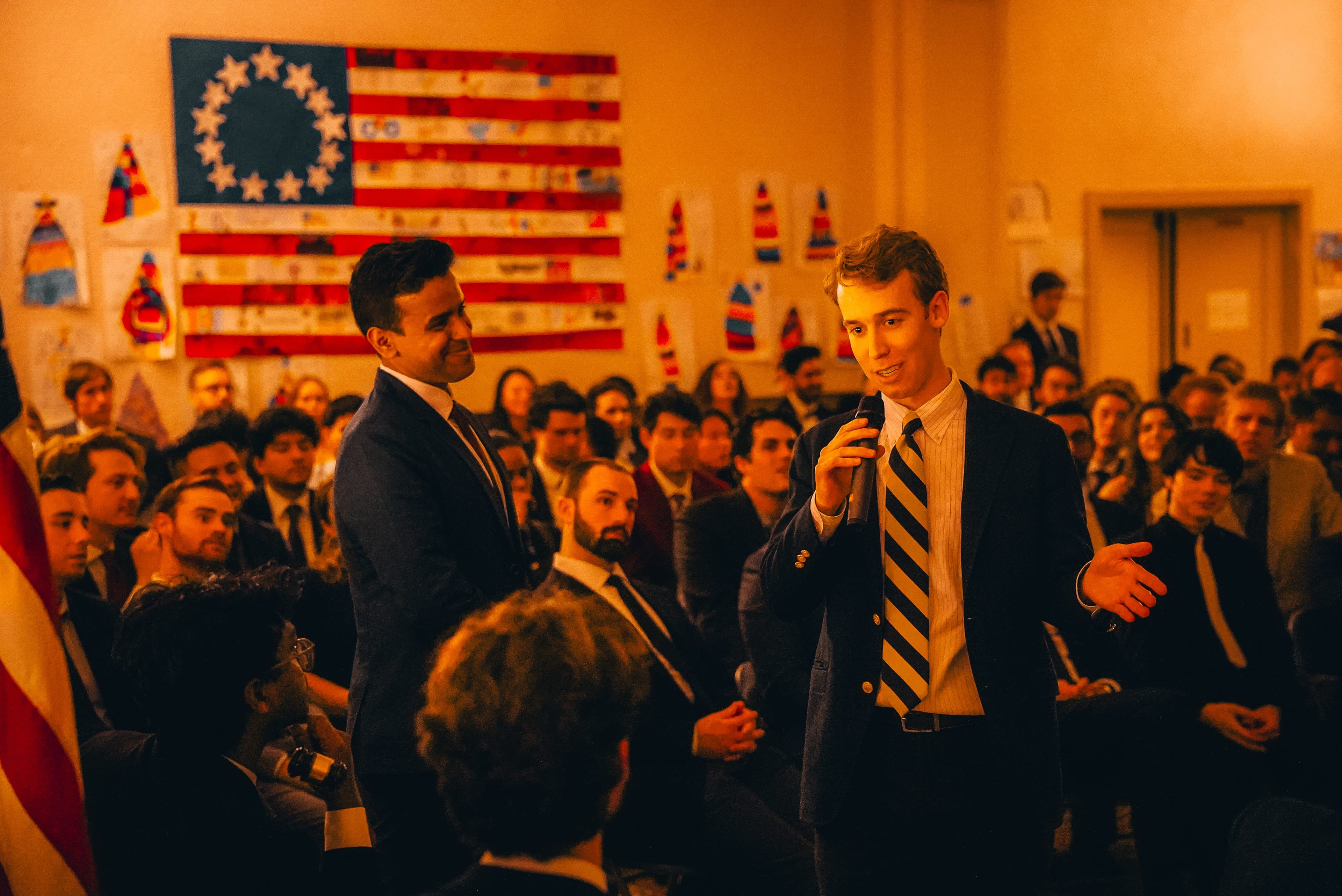
Meet the Secret Society Where Young Tech Debates the Future of the WestJan 30
the hamilton society, which hosts monthly debates inside a catholic church, is quickly becoming a cultural focal point in san francisco
Mar 16, 2023

For years, it was fashionable among certain “class-first” or “class-reductionist” leftists to dismiss the culture wars as a distraction — a way of keeping the proles fighting with each other and therefore unable to forge the class solidarity needed to foment some sort of revolution that would overthrow the capitalist status quo. This is a nice idea, but the broad sweep of American history doesn’t support that thesis: long before George Washington won the first presidential election, there have been two tribal agglomerations that seized upon various issues — some economic ones, certainly, but mostly cultural baggage. Today that cultural baggage swarms your timeline: JK Rowling is either a heroic defender of women’s rights or a cruel TERF (she can’t merely be a writer of dull stories for children and midwit grown-ups), books are sacrosanct unless your team wants them out of the library, school curriculum is something to be decided by parents unless those parents don’t want to get rid of curriculum (America-First social studies, CRT) your team has decided has to got to go.
While the issues change and the tribes are occasionally reconfigured, the song remains the same. Such is the thesis of Hyrum Lewis and Verland Lewis’ compelling new book, The Myth of Left and Right. Despite claims to the contrary by other scholars, Lewis and Lewis argue, the issue-sorting is largely non-ideological; it is merely a way for people identifying with one team or another to take it personal and then make it personal, establishing their team allegiance first and then gradually adopting that team’s grab-bag of issues thereafter. Should the stakes get high enough, as they did in 1861, you may trigger a civil war — still the gravest danger for a nation otherwise isolated from its rivals by two vast oceans, even if the likelihood of a second civil war, superheated punditry aside, remains remote.
Left out of The Myth of Left and Right is the impact of advertising and marketing. The authors concede that tribal conflict has become superheated during the past twenty years, but they fail to reckon with the critical role played by marketing language — the only genuinely novel contribution of America to world-historical literary discourse, per Jackson Lears’ Fables of Abundance: A Cultural History in America. The great American evangelists, poets, and statesmen were all “self-made” in the sense that they were canny promoters of themselves and their messages. The myth of the country’s foundation as an unpopulated land of boundless opportunity was a necessary fiction to convince immigrants to risk a harsh ocean journey in order to start anew in a land that was both populated by indigenous people and bounded by the various colonial powers attempting to gain control of the continent. This foundational myth, in turn, has made subsequent generations uniquely susceptible to marketing pitches that promise a manifest destiny of untold abundance.